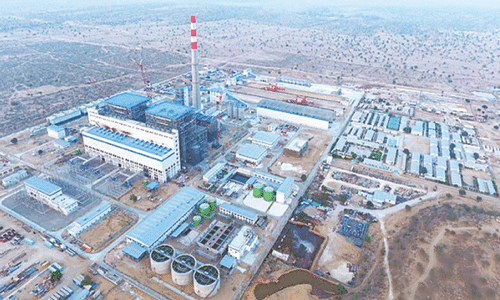As political noise grows louder after a year of immense stress, tired people are more interested in knowing the timeframe for the availability of vaccines, whether they should also expect some relief after costly corporate bailouts and how long they will wait before new job options open up.
Sadly, it seems for now that politics has taken precedence over health, safety and welfare of citizens. The opposition is free to do what it pleases but it will not be absolved of the blame if it chooses to ignore its responsibility towards public health and economic wellbeing.
Sindh Chief Minister Murad Ali Shah pleasantly shocked Pakistanis by taking the charge, adopting a logical and scientific approach, pushing frontiers of possibilities by leveraging technology, saving lives and dodging a catastrophe when Covid-19 struck in early 2020. One wonders what is stopping him now in the midst of the second, and deadlier, wave of the pandemic from doing what ought to be done: (1) ensure affordable healthcare for patients, (2) offer a clear timeline for vaccination in the province, (3) rebuild the province’s economy shattered by Covid-19 by nudging private investors towards avenues with maximum job-creating potential and (4) focus resources and efforts to quickly complete ongoing development projects of roads and public transport, water and affordable basic services and utilities.
Private businesses have low expectations from the current PPP government. Its sorry performance over the past decade and a half provides them with plenty to groan about
Sindh Minister for Industries and Commerce Jam Ikramullah Khan Dharejo told Dawn over the phone that there exists great potential for industrialisation and hinged hope of its realisation on the timely disbursement of federal receivables, access to the fair share of gas and requisite support from the business community.
“Currently, we are focusing on improving roads destroyed by rains last year and willing to sit with representatives of the business community to do all in our power to facilitate industrialisation.”
“We are cognisant of the role of the private sector in growth and development but have yet not been able to win them over to partake in the efforts to close the infrastructure gaps. Unfortunately, they hold a laundry list of demands to our face every time we meet with little inclination to lend a helping hand to set things right,” he commented.
Sindh Industries Secretary Muhammad Riazuddin blamed everyone but his department for the sorry state of affairs in industrial estates. The officer who assumed the charge recently was content with his ignorance. He did not agree that the recent monetary and fiscal stimulus of the federal government impacted the investors’ sentiments positively.
The private sector, already not particularly friendly with the ruling PPP, has low expectations from the current setup. The sorry performance of the Sindh government over the past decade and a half in terms of expanding the physical infrastructure facilities and improving basic service delivery provides them with plenty to groan about.
“PPP leadership has a rural background. They lack insight into business and commerce. If a city the size of Karachi lacks a dependable public transport system and something basic like water for households, that speaks loud and clear about their priorities,” Karachi Chamber of Commerce and Industry President Iftikhar Ahmed Vohra said over the phone. Sycophancy
He thought the corporate sector might expand their units in the immediate future but there was nothing to suggest that the province was on the cusp of largescale industrialisation.
Mr Vohra blamed banks, K-Electric and the infrastructure deficit for the reluctance of investors to put up new industry in Sindh. “It is not possible for a new entrant to raise capital from commercial banks (owned by half a dozen large business groups). They are too selective and risk averse. The city will have to break free from the clutches of power monopoly K-Electric that dictates rates and is not ready to invest in improving the crumbling distribution network.”
He said the relevant departments will have to put their act together to create a conducive environment for broad-based industrialisation in Sindh.
Mr Vohra urged his community to shed its fixation on Karachi as the only investment destination and move to industrial zones outside the city to make a mark.
The insiders in the Sindh government, frustrated as they may be for the multiplicity of power centres in the province, corruption and the culture of patronage, pin their hopes on slow but consistent progress in the domain of Special Economic Zones (SEZs) with a particular focus on the work of Special Economic Zones Management Sindh (SEZMS) at Dhabeji.
When contacted by Dawn, SEZMS CEO Azeem Uquaili was hopeful. Sharing details of the Dhabeji SEZ, he said the response to the rebidding after the developer who won the bid withdrew is far more encouraging than before.
“We have credible big groups taking interest in the Dhabeji zone also because of its proximity to the port and the lure of an attractive incentives package. The Sindh government has promised easy access to local and export markets. A direct access to the eight-kilometre road connecting Port Qasim to Dabeji and a dedicated cargo deck connecting the zone with ML-1 will facilitate the movement of men and material locally and a jetty will provide direct access to the creek for the benefit of export consignments.
“We have committed to providing electricity, gas and water without binding the developer with the option for developers to explore other private arrangements.”
On the selection of the developer in Dhabeji, one of the first three SEZs identified for development under the CPEC umbrella, he said experts were engaged to help make the decision. It is being built in a public-private partnership mode on the design, build, finance, operate and transfer (DBFOT) basis, he said. “The developer will be obligated to develop 1,530 acres of land, maintain and populate the area over the 20-year concession period.”
Published in Dawn, The Business and Finance Weekly, January 11th, 2021















































